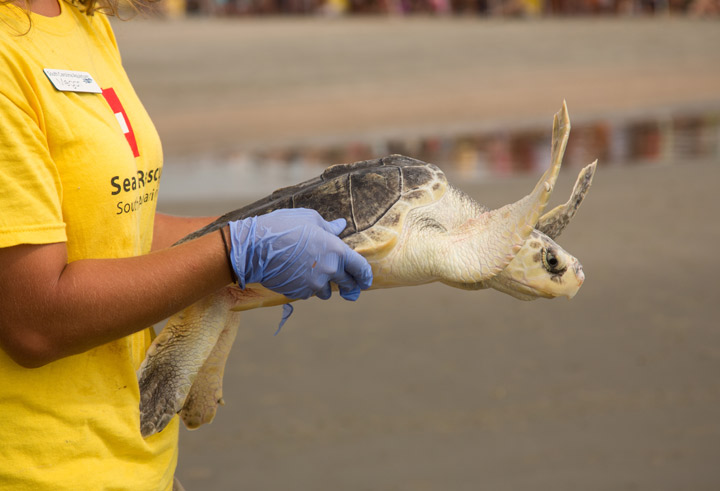TORONTO – Green sea turtles are eating more man-made debris than ever before, according to a new study.

Based on data collected from around the world since the late 1980s, scientists investigated the prevalence of marine debris ingestion in 115 sea turtles that were stranded between 2006 and 2011 in Queensland, Australia.
Published in the journal Conservation Biology, the findings showed that six of the world’s seven species of sea turtles that are listed as globally endangered or vulnerable have been found to swallow debris, specifically plastic, at twice the rate they did 25 years ago.
Researchers at the University of Queensland found that green sea turtles were specifically found to be eating more debris than they used to. Debris ingestion rates for the species jumped from about 30 per cent in 1985 to nearly 50 per cent in 2012.
READ MORE: Masses of plastic particles found in Great Lakes
The impact of the debris can cause a number of different problems for wildlife.
A 2002 report found that marine life can often get entangled in the debris, which can lead to drowning or the inability to escape predation. Consumption of debris can also lead to death in marine life as the garbage can often perforate the digestive system.
Qamar Schuyler, the study’s lead researcher, told AFP that ingested plastics could also release toxins into the animals “either via chemicals in the plastics themselves or which the products have absorbed as they have floated around the ocean.”
“The animal may not die of that right away but it may impact things like their reproductive cycle and that has longer-term consequences,” she told AFP.
Contrary to popular belief, the turtles that were found to have the most amount of ingested debris in them were not necessarily from the most polluted or populated areas, suggesting the species are ingesting the debris usually somewhere farther away from where they end up.
Researchers found that the most commonly ingested debris found was hard plastic, followed by soft plastic, Styrofoam, rubber, ropes, packing straps, fishing items and balloons.
The study calls for a global action and says local communities need to put stricter disposal measures in place in order the amount of debris entering the ocean.




Comments